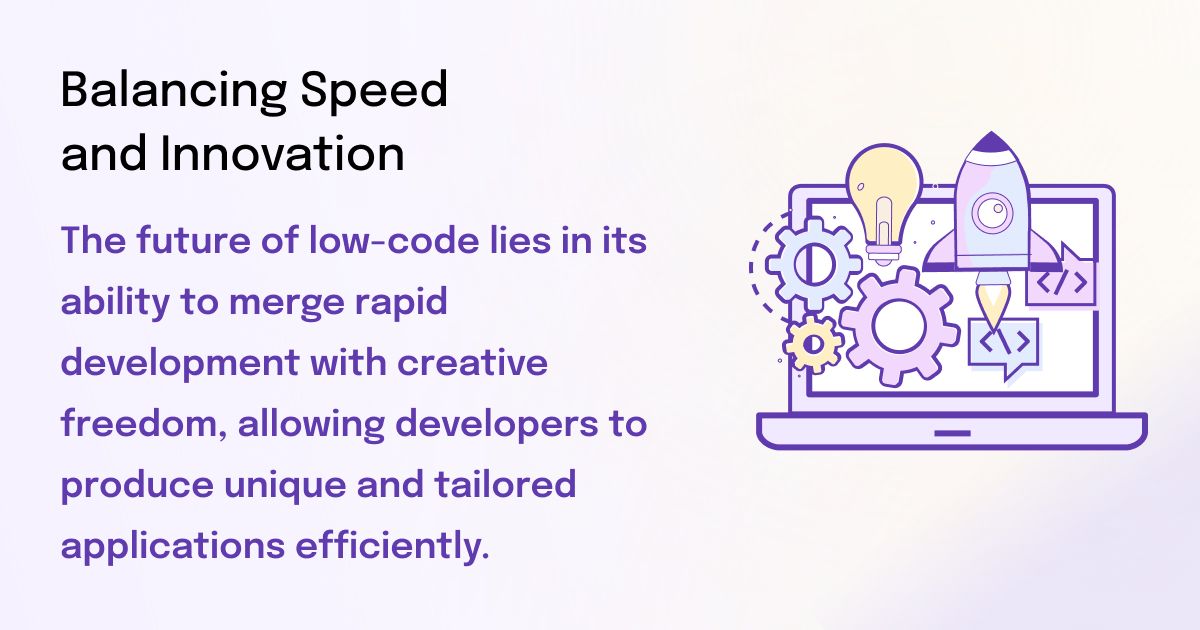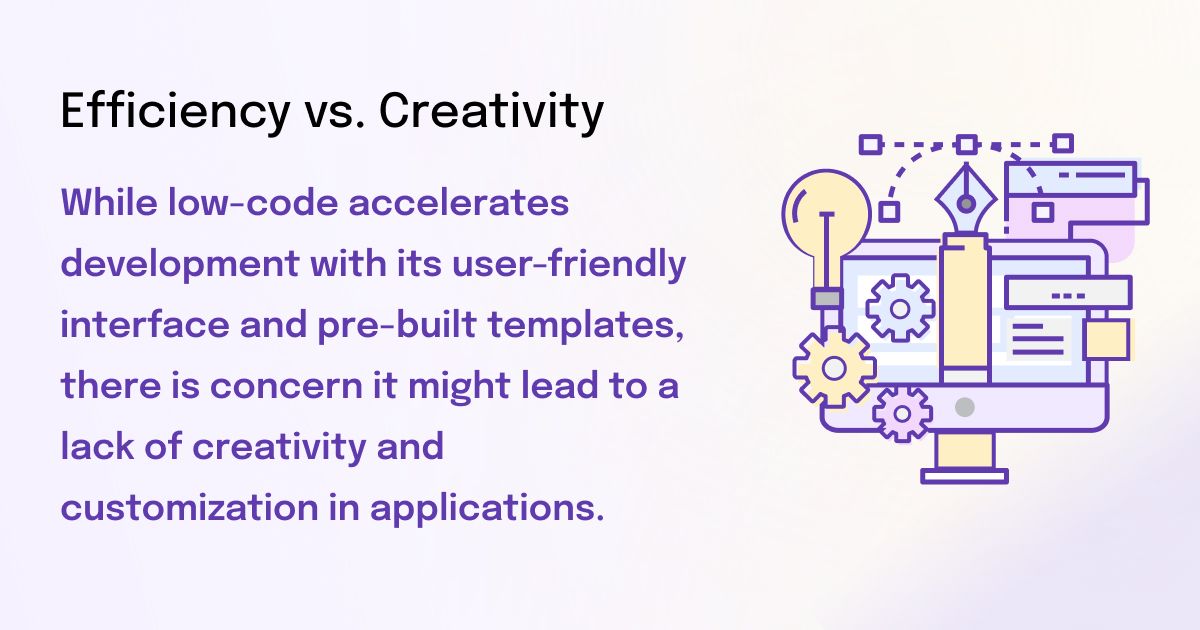The Low-Code Revolution: Accelerating Development or Hindering Creativity?
In the rapidly evolving world of software development, the rise of low-code platforms has sparked a revolution. By enabling faster and more efficient creation of applications, these platforms have democratized development, allowing a broader range of professionals to contribute to the software landscape. However, this shift raises a crucial question: Does the convenience of low-code solutions accelerate development at the cost of stifling creativity? This article delves into the nuances of this debate, offering insights into how low-code is reshaping the industry.

The Rise of Low-Code: A Game-Changer in Software Development
Low-code platforms have emerged as powerful tools for businesses seeking to streamline their application development process. By offering a user-friendly interface with drag-and-drop features and pre-built templates, these platforms reduce the need for extensive coding, making app development faster and more accessible.
This accessibility has opened doors for non-technical professionals to participate in application development, breaking down traditional barriers. The result is a more inclusive, agile approach to creating software, where ideas can be rapidly prototyped and iterated upon.
Balancing Speed and Creativity: The Core Challenge
While the speed and efficiency of low-code platforms are undeniable, concerns about their impact on creativity and customization have surfaced. Critics argue that the templated nature of low-code solutions may lead to a homogenization of applications, with many apps looking and functioning similarly.
The key challenge lies in balancing the efficiency gains of low-code with the need for innovation and custom solutions. Can developers harness the power of low-code without compromising on the unique needs and creative aspirations of their projects?

Low-Code and High-Customization: Finding the Middle Ground
Forward-thinking companies are addressing these concerns by blending low-code with traditional development practices. This hybrid approach allows for the rapid development of standard application components while retaining the flexibility to customize and innovate where necessary.
Moreover, some low-code platforms are evolving to offer greater customization capabilities, ensuring that developers can tweak and tailor applications to meet specific requirements. This evolution signifies a shift towards more sophisticated low-code solutions that can cater to a broader spectrum of development needs.
Empowering Creativity Through Advanced Low-Code Features
The latest generation of low-code platforms is pushing the boundaries further. With advanced features like AI-assisted development and integration capabilities with cutting-edge technologies, these platforms are empowering developers to create more complex and innovative applications.
For instance, AI can suggest optimizations and enhancements during the development process, while integrations with technologies like IoT and blockchain open new avenues for creative application development.
Conclusion: The Future of Low-Code – Accelerating Development Without Compromising Creativity
As the low-code revolution continues, it's clear that the future of software development is not a choice between speed and creativity but a harmonious blend of both. By leveraging advanced low-code platforms, developers can accelerate the development process without sacrificing the unique, creative essence of their projects.

The key to success in this new landscape is adaptability. Developers and companies must be willing to embrace the evolving capabilities of low-code solutions, ensuring they stay at the forefront of innovation while reaping the benefits of accelerated development.
In conclusion, low-code is not just a trend; it's a transformative movement in the software development arena. By striking the right balance between efficiency and creativity, the low-code revolution is poised to continue reshaping the industry, offering an exciting pathway to the future of application development.
We can help!
Finding The Right Match: When Scrum Works Best
#Customapplicationdevelopment
Mvps - A Silver Bullet In Software Development
#Customapplicationdevelopment



